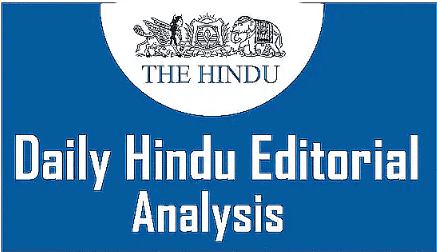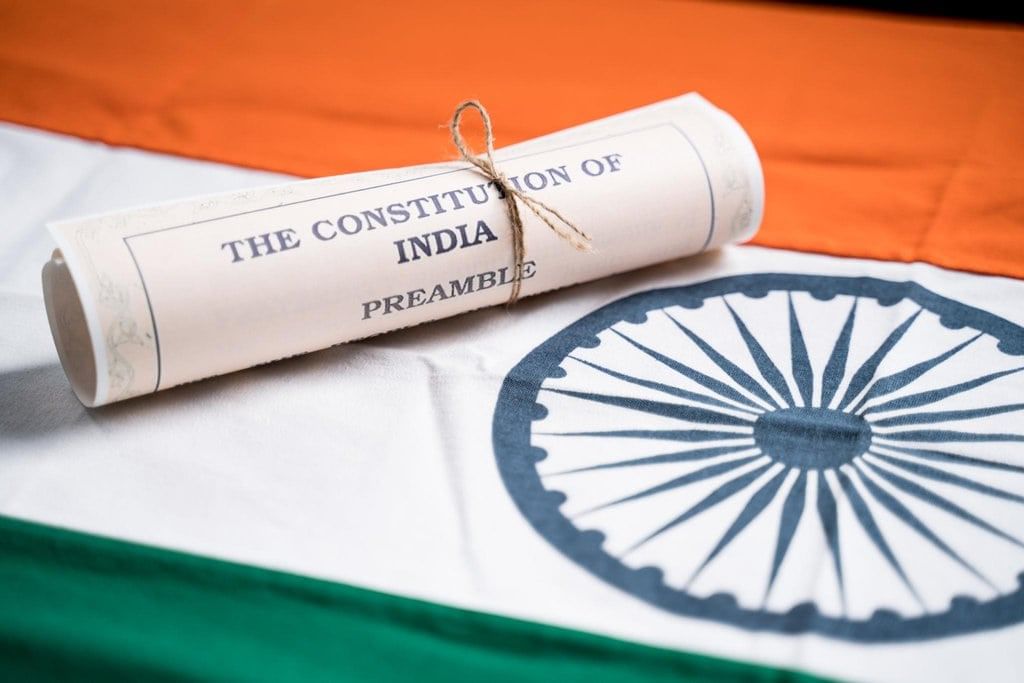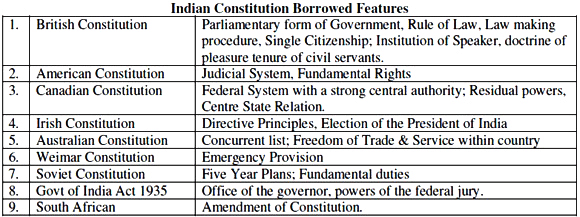UPSC Exam > UPSC Notes > Current Affairs & Hindu Analysis: Daily, Weekly & Monthly > The Hindu Editorial Analysis- 22nd October 2024
The Hindu Editorial Analysis- 22nd October 2024 | Current Affairs & Hindu Analysis: Daily, Weekly & Monthly - UPSC PDF Download

An Approaching Milestone in Constitutional Governance
Why in News?
November 26 this year will mark the commemoration of the 75th anniversary of the adoption of the Constitution of India. It is a milestone that needs to be celebrated by every stakeholder of Indian democracy. Constitutional governance in India is not merely a facet of the laws, rules and regulations that govern the establishment and the evolution of democratic institutions. It is also about permeating a deep sense of constitutional culture that has captured the collective consciousness of Indians across dierent cultures, faiths and beliefs.
About Constitution Day
- Constitution Day is observed every year on 26th November.
- It is also referred to as National Law Day.
- On this day in 1949, the Constituent Assembly of India officially adopted the Constitution of India, which came into effect on 26th January 1950.
- The Ministry of Social Justice and Empowerment, on 19th November 2015, announced the decision of the Government of India to celebrate 26th November as 'Constitution Day'.
Framing of the Constitution
- 1934: M N Roy's Proposal: In 1934, M N Roy was the first to suggest the idea of forming a constituent assembly to draft the Constitution.
- 1946: Cabinet Mission Plan: The elections for the constituent assembly were held under the Cabinet Mission plan of 1946.
- Role of the Constituent Assembly: The Constitution of India was framed by the Constituent Assembly of India, which appointed 13 committees to handle various tasks related to drafting the Constitution.
- Types of Committees: Among the 13 committees, there were 8 major committees and several minor ones.
List of Major Committees and Their Heads
- Drafting Committee: Chaired by B. R. Ambedkar, responsible for drafting the Constitution.
- Union Power Committee: Chaired by Jawaharlal Nehru, focused on the distribution of powers between the Centre and the states.
- Union Constitution Committee: Also chaired by Jawaharlal Nehru, dealt with the overall framework of the Union Constitution.
- Provincial Constitution Committee: Led by Vallabhbhai Patel, worked on the Constitution for the provinces.
- Advisory Committee on Fundamental Rights, Minorities, and Tribal and Excluded Areas: Chaired by Vallabhbhai Patel, focused on fundamental rights and the rights of minorities and tribal areas.
- Rules of Procedure Committee: Chaired by Rajendra Prasad, established the rules for the assembly's functioning.
- States Committee (Committee for Negotiating with States): Chaired by Jawaharlal Nehru, negotiated with the princely states regarding their integration into the Union.
- Steering Committee: Led by Rajendra Prasad, coordinated the work of the assembly.
Facts About the Constitution of India
- World's Lengthiest Constitution: The Constitution of India is the longest written constitution of any sovereign country in the world.
- Federal System with Unitary Features: India has a federal system of governance, which means that power is divided between the central government and state governments. However, it also has unitary features, allowing the central government to have greater control in certain situations.
- Parliamentary Form of Government: India follows a parliamentary system where the executive branch derives its democratic legitimacy from, and is directly accountable to, the legislature (Parliament).
- Framing Duration: The Constitution was framed over a period of 2 years, 11 months, and 18 days, reflecting the thorough and meticulous process involved.
- Original Copies: The original copies of the Indian Constitution were handwritten, not typed or printed. These unique copies are preserved in a helium-filled case in the library of the Parliament.
- Calligrapher: Prem Bihari Narain Raizada was the skilled calligrapher who wrote the original copies of the Constitution of India.
- Languages: The Constitution of India was originally written in two languages: English and Hindi.
- Historical Basis: The basic structure of the Indian Constitution is based on the Government of India Act, 1935, which was an important precursor to the Constitution.
- Borrowed Features: The Constitution of India has incorporated various features from the constitutions of different countries, making it a unique blend of global constitutional practices.

The document The Hindu Editorial Analysis- 22nd October 2024 | Current Affairs & Hindu Analysis: Daily, Weekly & Monthly - UPSC is a part of the UPSC Course Current Affairs & Hindu Analysis: Daily, Weekly & Monthly.
All you need of UPSC at this link: UPSC
|
38 videos|5293 docs|1118 tests
|
FAQs on The Hindu Editorial Analysis- 22nd October 2024 - Current Affairs & Hindu Analysis: Daily, Weekly & Monthly - UPSC
| 1. What are the key milestones in constitutional governance that are being discussed in the article? |  |
Ans. The article discusses significant milestones such as the evolution of constitutional principles, landmark judicial rulings, and reforms that have shaped the governance framework. It highlights events that have reinforced democratic values and the rule of law.
| 2. How does the article address the challenges faced in constitutional governance? |  |
Ans. The article outlines various challenges such as political instability, erosion of democratic norms, and issues of accountability. It emphasizes the need for robust frameworks to address these challenges and ensure the integrity of constitutional governance.
| 3. What role does the judiciary play in upholding constitutional governance as per the article? |  |
Ans. The article emphasizes the judiciary's crucial role in interpreting the constitution, protecting fundamental rights, and acting as a check on legislative and executive powers. It highlights landmark cases that have set precedents for constitutional interpretation.
| 4. How does public participation influence constitutional governance according to the article? |  |
Ans. The article discusses how public participation is vital for a healthy democracy. It asserts that citizen engagement in governance processes promotes accountability, transparency, and reflects the people's will, thus strengthening constitutional governance.
| 5. What future directions for constitutional governance are suggested in the article? |  |
Ans. The article suggests that future directions include enhancing the mechanisms for accountability, fostering a culture of constitutionalism, and encouraging public discourse on governance issues. It advocates for reforms that align with contemporary societal needs and values.
Related Searches
















